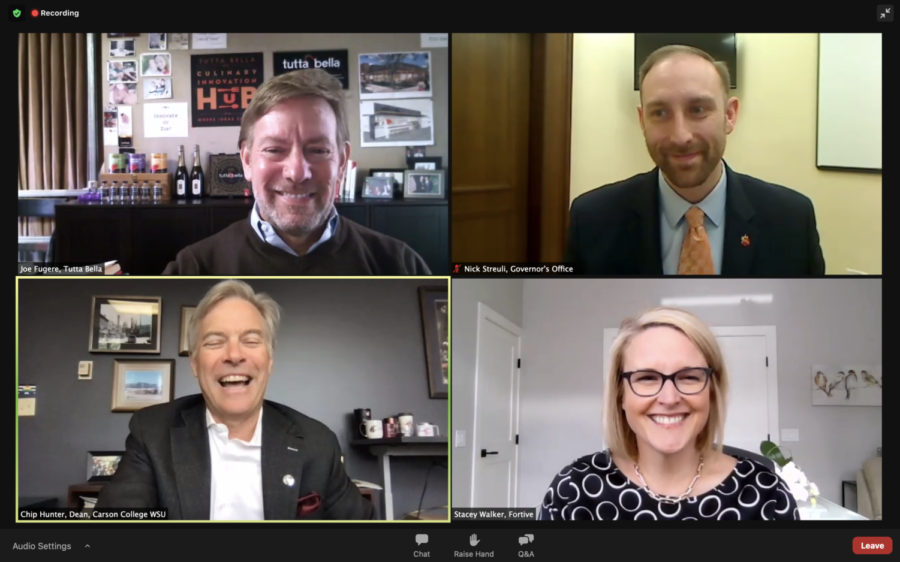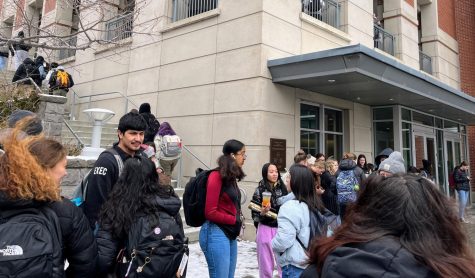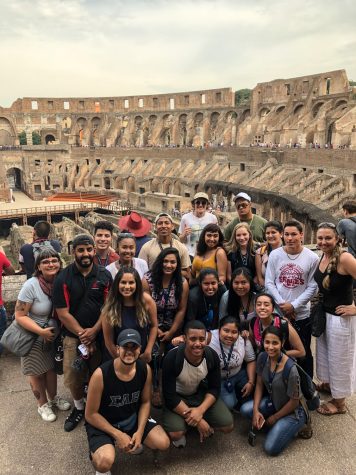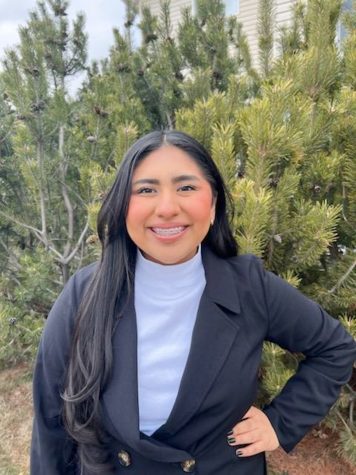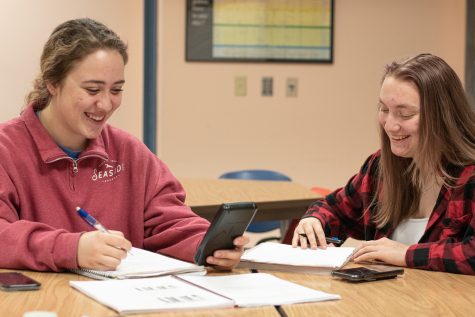Carson College of Business hosts ‘Virtual Power Breakfast’
Panelists discuss remote work, employee support, lessons learned from pandemic
The panel included Joe Fugere, Tutta Bella Neapolitan Pizzeria founder and CEO, Stacey Walker, Fortive Corporation senior vice president of human resources and Nick Streuli, Washington State Governor’s Office executive director of external affairs.
June 10, 2021
The WSU Carson College of Business held a discussion on “Unexpected Outcomes: COVID-19 and Business in the Pacific Northwest” Wednesday morning.
The panel included Joe Fugere, Tutta Bella Neapolitan Pizzeria founder and CEO, Stacey Walker, Fortive Corporation senior vice president of human resources and Nick Streuli, Washington State Governor’s Office executive director of external affairs.
Prior to the pandemic, Fortive operated at around 15 percent remote work. This has now jumped to about 40 percent remote work, Walker said.
Fortive needed to keep factories running, so it was not able to allow remote work for all employees. Instead, it created a hybrid work environment that kept factory workers as safe as possible, she said.
The Governor’s Office has around 70,000 employees statewide, so it seemed impossible to have a wide range of services provided remotely at the beginning of the pandemic. However, in a matter of weeks, a high percentage of services switched to remote work, Streuli said.
“It’s really taught us that there are opportunities within remote work to increase employee satisfaction, increase employee flexibility and increase our ability to deliver services differently,” he said.
A pertinent part of employee support during the pandemic is being flexible and listening to the needs of employees, especially those with additional responsibilities outside of work, Fugere said.
“We told our managers to be flexible; instead of this work-life balance, [it is a] weaving of the two together, and we’ve always wanted to achieve that, and COVID kind of forced us there,” he said.
Fortive showed employees support by providing maximum flexibility, conducting check-ins, increasing behavioral health benefits and discounting prices on childcare, Walker said.
“Perfection is not on the menu,” she said. “We recognized that there’ll be mistakes made. But what we’ve proven and what we’ve built here is a lot of trust.”
When it comes to innovative business decisions during the pandemic, Fugere said business leaders should try new ideas.
“I didn’t think I had it in me to go full steam ahead on things that often take months or years to make decisions on,” he said. “Just do it.”
An important takeaway for our state government is to question the status quo. Just because things have been done a certain way, does not mean they have to continue to be done that way, Streuli said.
“It’s been an incredible experience where we’ve all bared more of our personal lives with our colleagues than we normally would have,” he said. “It humanizes all of us and breaks down some of those barriers to a point where we are able to make decisions as teams.”

